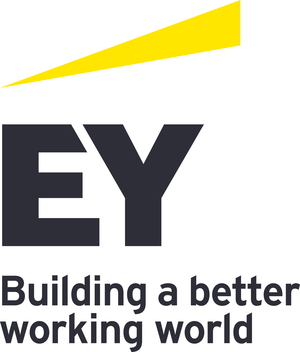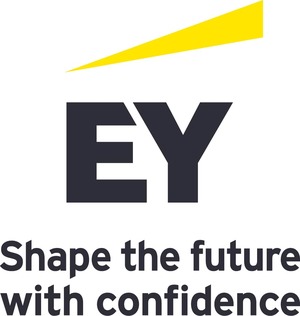Disruption in alternative asset management reaches tipping point as innovation, changing investor preferences and convergence reshape the industry
- Investors looking to increase allocations to private equity funds and other asset classes; hedge funds facing headwinds raising capital
- Investor desire for customization and various non-traditional, uncorrelated exposures leading to increased convergence of alternative asset business models
- Artificial Intelligence and next-gen data moving into the front office at a faster rate
- Automating operations are an opportunity for differentiation and economic scale
- Talent profiles - fueled by enhanced technology and data analytics needs - are rapidly evolving, making the war for talent even more challenging
NEW YORK, Nov. 5, 2018 /PRNewswire/ -- Market conditions and changing investor preferences are creating new challenges for hedge fund managers' capital raising ambitions. These conditions are also enabling private equity and other alternatives to gain favor with investors, according to the EY 2018 Global Alternative Fund Survey, titled At the Tipping Point: Disruption and the pace of change in the alternative asset management industry.
The 12th annual survey (formerly the EY Global Hedge Fund Survey) found that 20% of investors plan to decrease allocations to hedge funds in 2018, which continues a multi-year trend of slowing allocation appetite for hedge fund products. Conversely, private equity managers are seeing heightened interest in their products. A third of investors (34%) plan increased allocations to private equity, while only 9% foresee decreases in allocations in the next three years.
Natalie Deak Jaros, EY Global Hedge Fund Services Co-leader, says: "Alternative asset managers are grappling with a whirlwind of changes, and they can either act now to address industry disruptions – ranging from technological innovation to products and competition from new players – or admit defeat and lose competitive market share. In order for alternatives to stay ahead, they need to appease investor demand for customization, implement technology that augments investment decisions, and hire the proper talent to both manage technology and bring outside thinking to the traditional financial services mindset."
New products result in blurred lines as firms address investor demand for customization and nontraditional portfolio exposures
As investors demand more customized products and outcome-oriented solutions, hedge fund and private equity managers find themselves in increased competition as each is increasingly tapping into investor desire for nontraditional offerings such as private credit, real estate and real assets. A majority of investors responded that they are increasingly allocating to a variety of offerings, including private credit, real estate and real assets. Thirty-five percent of hedge fund managers and 46% of private equity managers reported having a private credit offering. According to the survey, just under 30% of hedge fund managers reported having a private equity offering, and 20% of private equity managers reported having hedge products. The diversification of product offerings is directly resulting in convergence as managers across all strategies develop expertise and are branching out to a variety of alternative offerings.
Alternative asset managers are grappling with increased investor demand for more involvement in their investments as well. Allocators increasingly want to be more active partners with their managers and have a voice on investment decisions and operational matters. More than one-third of investors plan to increase this behavior as "active LPs," and 32% say they will increasingly build out investment capabilities to replicate the strategy internally without the assistance of a third-party external manager.
Associated with the trend of investors becoming more active partners with their managers is a demand that product offerings be tailored to investors' needs. Hedge funds are responding to increasing investor demand for customization by increasing or planning to increase the number of separately managed accounts (SMAs) and funds of one they offer. Over a third of hedge funds offer, or plan to offer, funds or SMAs with tailored investment portfolios for specific investors. These products appease investor demands, but create operational headaches for alternative asset managers.
Artificial intelligence (AI) and alternative data shake up the front office for hedge funds, but private equity firms trail in their adoption rate
Hedge fund managers are embracing AI at a rapid pace in the front office. Quantitative managers have been on the forefront of this technology for years, but managers of all strategies are now building capabilities and taking advantage of next-generation trading systems and tools. Nearly three times as many hedge fund managers are using AI compared to last year (29% vs 10%). Similarly, 31% of hedge managers are exploring AI and have plans to implement the technology, compared to just 17% last year.
The story is the same for next-generation data, as 70% of hedge fund managers are using, or expect to use alternative data within their investment process. The use of nontraditional data and/or AI is viewed by managers as an opportunity to enhance their investment process and differentiate themselves in a crowded, competitive landscape.
Dave Racich, EY Global Hedge Fund Services Co-leader, commented: "Not only do managers clearly see the benefit of AI and alternative data in helping them gain a competitive edge, but investors are actively seeking out managers that are exploring new innovations to deliver alpha. Not long ago we were only talking about quantitative managers utilizing these techniques; however, we continue to see increased adoption and use cases across all strategies."
The AI adoption rate among private equity firms is much lower, with three quarters of respondents indicating they don't use AI and have no intention to do so. While the business case for these technologies might not be apparent yet in private equity, once adoption increases, it could spread rapidly as it has with hedge funds. Larger private equity managers offer a possible glimpse into the near future: many of them are investing in big data to help identify investment opportunities while providing analysis into pricing trends that guide buyout negotiations.
In the back and middle office, both hedge funds and private equity continue to invest in technology solutions. Both see value in leveraging technology for middle-office functions, including treasury as well as compliance and regulatory reporting. However, the sophistication of the technology investments is more pronounced with hedge fund managers who are ahead in using AI and robotics to automate a variety of processes. Thirty-four percent of hedge fund managers indicated they have made back-office investments in robotics, which are resulting in more timely and accurate reporting. This compares to only 1% of private equity managers who reported using this technology.
Managing the evolving talent pool emerges as a key priority
For alternative asset managers, talent management emerged as a key concern. More than 40% of hedge fund managers and 50% of private equity managers cited talent attrition as one of the industry's top three risks. In both the front and back office, nearly half of managers have changed the type of talent they're looking for compared to 5 to 10 years ago.
While hedge funds look for talent with data and analytics experience, private equity funds are steering their people searches toward gender and cultural diversity. This reflects private equity's place as a "people-driven" business, especially compared to other alternative asset managers.
The prioritization on talent does not necessarily translate to institutionalization of this very important function. More than 60% of hedge fund firms and more than half of private equity firms say they do not have a formal talent management program in place. This is at odds with investor preferences, as 68% responded that a formal talent program is an important influence on their investment decision.
Mike Lo Parrino, EY Americas Financial Services Organization Private Equity Leader, added: "The ability to navigate the talent landscape has never been more critical for asset managers. Firms need to integrate technology skill sets with traditional finance professionals, which can be a challenging balance to achieve. Further, there is strong competition for data scientists, programmers and other in-demand skill sets among alternative asset management firms. Both managers and investors see this as a priority as alternative asset managers consider the next generation of talent and what skills they need in the future for success."
The complete survey is available at www.ey.com/AltsSurvey.
Notes to Editors
About EY
EY is a global leader in assurance, tax, transaction and advisory services. The insights and quality services we deliver help build trust and confidence in the capital markets and in economies the world over. We develop outstanding leaders who team to deliver on our promises to all of our stakeholders. In so doing, we play a critical role in building a better working world for our people, for our clients and for our communities.
EY refers to the global organization, and may refer to one or more, of the member firms of Ernst & Young Global Limited, each of which is a separate legal entity. Ernst & Young Global Limited, a UK company limited by guarantee, does not provide services to clients. For more information about our organization, please visit ey.com.
This news release has been issued by EYGM Limited, a member of the global EY organization that also does not provide any services to clients.
About the EY Global Alternative Fund and Investor Survey
The purpose of this study is to record the views and opinions of Alternative fund managers and institutional investors globally. Managers and investors were asked to comment on how disruption and innovation are reshaping the alternatives industry. Specific topics included strategic priorities; fundraising, new product development; convergence; the impact of advanced technology and alternative data on the front, middle and back office; the changing talent management landscape; cost management; and future views on the industry. From July to September 2018, Greenwich Associates conducted 102 interviews with hedge funds representing over $1.1 trillion in assets under management and 103 interviews with private equity firms representing nearly $2.2 trillion in assets under management, and 65 interviews with institutional investors (funds of funds, pension funds, endowments and foundations) representing over $2.7 trillion in assets under management.
SOURCE EY
Related Links
WANT YOUR COMPANY'S NEWS FEATURED ON PRNEWSWIRE.COM?
Newsrooms &
Influencers
Digital Media
Outlets
Journalists
Opted In





Share this article